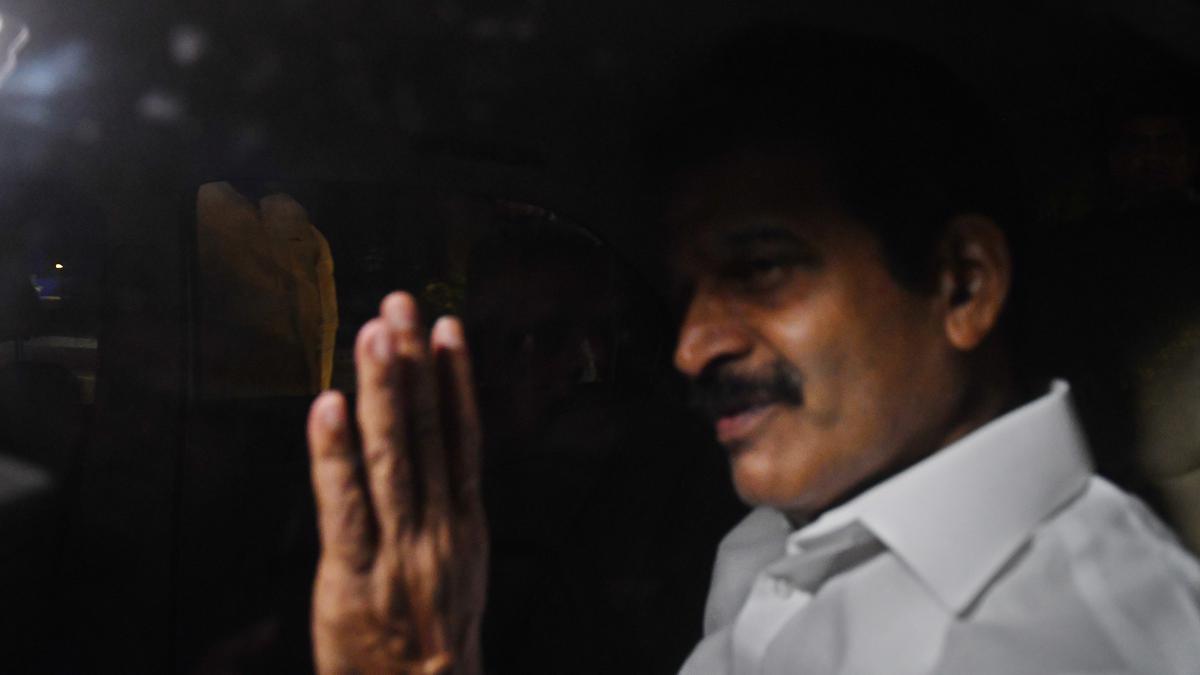
Rahul Gandhi not a leader who who can be broken by court verdicts or disqualification as MP: Venugopal
The Hindu
“This verdict cannot affect our decision to do our best to keep the people of this country united.”
All India Congress Committee (AICC) general secretary K.C. Venugopal on Friday said the Congress would approach the Supreme Court against the Gujarat High Court’s dismissal of Congress leader Rahul Gandhi’s plea for a stay on his conviction in a defamation case over the Modi surname remark.
Speaking to reporters in Kozhikode, Mr. Venugopal said there was no point in expecting justice from Gujarat in the current circumstances. He expressed full faith in the country’s judicial system.
“This verdict cannot affect our decision to do our best to keep the people of this country united. This is not a political backlash but an opportunity for the Congress. The people of this country are not fools,” Mr. Venugopal said.
He said Mr. Gandhi was not a leader who can be broken by court verdicts or disqualification as a parliamentarian. “It has been five or six months since the initial judgment and punishment. He was not scared then or now,” Mr. Venugopal said.
The Gujarat High Court on Friday dismissed Mr. Gandhi’s plea for an injunction and upheld the order of a lower court over the ‘Modi surname’ case, citing that it was “just, proper, and legal”. An injunction order could have paved the way for Mr. Gandhi’s return to Parliament.
On March 23, a metropolitan magistrate court in Surat sentenced Mr. Gandhi to imprisonment for two years after convicting him for criminal defamation on a suit filed by Purnesh Modi, a BJP MLA from Gujarat.
Mr. Modi the filed the case against Mr. Gandhi for his remarks during an election rally in Karnataka in 2019, where he asked, “How come all thieves have Modi as the common surname?”

“Writing, in general, is a very solitary process,” says Yauvanika Chopra, Associate Director at The New India Foundation (NIF), which, earlier this year, announced the 12th edition of its NIF Book Fellowships for research and scholarship about Indian history after Independence. While authors, in general, are built for it, it can still get very lonely, says Chopra, pointing out that the fellowship’s community support is as valuable as the monetary benefits it offers. “There is a solid community of NIF fellows, trustees, language experts, jury members, all of whom are incredibly competent,” she says. “They really help make authors feel supported from manuscript to publication, so you never feel like you’re struggling through isolation.”

Several principals of government and private schools in Delhi on Tuesday said the Directorate of Education (DoE) circular from a day earlier, directing schools to conduct classes in ‘hybrid’ mode, had caused confusion regarding day-to-day operations as they did not know how many students would return to school from Wednesday and how would teachers instruct in two modes — online and in person — at once. The DoE circular on Monday had also stated that the option to “exercise online mode of education, wherever available, shall vest with the students and their guardians”. Several schoolteachers also expressed confusion regarding the DoE order. A government schoolteacher said he was unsure of how to cope with the resumption of physical classes, given that the order directing government offices to ensure that 50% of the employees work from home is still in place. On Monday, the Commission for Air Quality Management in the National Capital Region and Adjoining Areas (CAQM) had, on the orders of the Supreme Court, directed schools in Delhi-NCR to shift classes to the hybrid mode, following which the DoE had issued the circular. The court had urged the Centre’s pollution watchdog to consider restarting physical classes due to many students missing out on the mid-day meals and lacking the necessary means to attend classes online. The CAQM had, on November 20, asked schools in Delhi-NCR to shift to the online mode of teaching.









